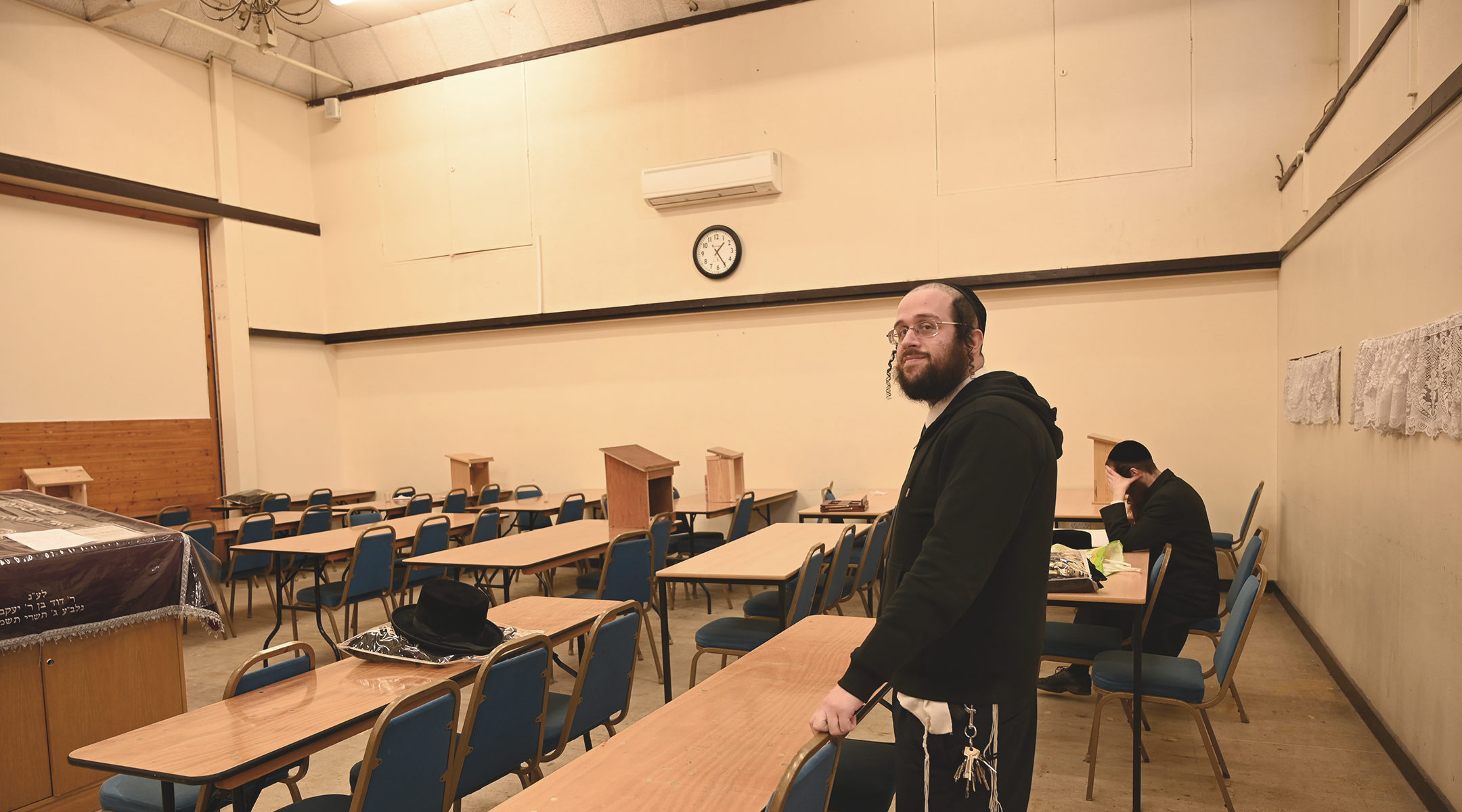(JTA) — As the coronavirus forced the shutdown of many synagogues in the United States and beyond last Shabbat, many British Jews celebrated the day of rest as usual.
At the time, their government was taking a far less restrictive approach even as the leaders of other countries shut down schools and urgently warned people to stay home as much as possible.
But this week, the British government finally introduced some drastic measures in managing the coronavirus crisis. Schools would close Friday, Prime Minister Boris Johnson announced Wednesday. While pubs remain open, patrons are being encouraged not to dine there. The government also warned against gatherings at houses of worship and other public spaces.
These developments mean that many synagogues across the United Kingdom will be closed this weekend, their community members experiencing the same rupture that other Jews around the world underwent last week.
The country’s chief rabbi, Ephraim Mirvis, announced that the 60 synagogues affiliated with his United Synagogue Orthodox umbrella group would close amid the pandemic.
“Our Torah obligation to protect the sanctity of life transcends all other considerations,” Mirvis wrote in his announcement.
Philip Carmel said he had been preparing for the Shabbat morning kiddush at Birmingham’s Central Synagogue when Mirvis made his announcement.
“I was still going, yeah,” said Carmel, a 56-year-old father of three from Birmingham, a city located 110 miles northwest of London.
Carmel said the synagogue shutdown was unprecedentedin his lifetime.
“Even throughout World War II, synagogues kept running here,” he said.
But Carmel said he recognized that the coronavirus epidemic would change Jewish life in his community.
“To be honest, what surprised me most about Mirvis’ announcement was that it hadn’t come sooner,” he said.
Many non-Orthodox synagogues are setting up online broadcasts, learning from their counterparts in the U.S. as they do.
Adam Zagoria-Moffet, the rabbi at St. Albans Masorti Synagogue just outside London, said he would hold a Friday evening service online before Shabbat begins and also conduct an online havdalah service, which concludes the Sabbath, on Saturday night. During the week, the rabbi said, he plans to hold drop-in online office hours and also manage a new website that pools learning materials from Jewish communities across the United Kingdom.
“British people in general are very good in a crisis,” Zagoria-Moffet said. “Most people are happy to help for the greater good and would be absolutely embarrassed to be caught panic-buying loo roll (they still do it, but alas).” That’s toilet paper for those unfamiliar with the vernacular.
Not all British synagogues are closing this week. Synagogue services are still taking place in Canvey Island, a town located about 30 miles east of London with a growing Jewish minority of about 80 haredi Orthodox families.
“We’re not under Rabbi Mirvis, so it’s not really affecting us,” said Jacob Gross, a Jewish community activist and father of six.
Gross said his community looks for instructions from Rabbi Ephraim Padwa in London’s Stamford Hill neighborhood and, as of Wednesday, Padwa had not called for synagogues to shutter.
The kosher grocery shop in Canvey Island is “fully stocked and there hasn’t been any of the panic shopping we’ve seen elsewhere,” Gross told the Jewish Telegraphic Agency.
Still, Gross said, life “is not normal.” He has one friend who self-quarantined and “people are trying to reduce contact with older family relatives,” who are at greater risk from the virus.
Adam Perry, a nonobservant Jewish 47-year-old from North London, also has reduced his contact with older people but said he believes that some of the measures related to the virus were unnecessary. He’s a father of three children aged 6 to 14.
“I think there’s a huge amount of hysteria around this, I’m not very worried and I intend to keep taking the Tube,” he said, meaning London’s subway system. “I’m going to live my life as normally as possible as long as that’s possible.”
If life grounds to a halt in Britain, “at least we’ll still be here in Muswell Hill,” Perry said, referencing a leafy and affluent northern neighborhood of London. The city, and especially its northern parts, is home to about 70 percent of the United Kingdom’s some 250,000 Jews.
“There’s plenty of woods to walk your dog in. I foresee a lot of dog walking, actually,” Perry said. “That dog won’t know what hit her.”
Back in Birmingham, “there are empty supermarket shelves,” Carmel said. He and his fiancee stocked up two weeks ago, well before the British populace descended on the supermarkets, creating shortages in products such as toilet paper and disinfectant gel.
His son lives around the corner, Carmel said, but “stopped coming round from Monday because he’s concerned about the possibility that he may be an asymptomatic carrier and give it to me. I keep telling him I’m not in a risk group.”
Carmel’s two daughters live in Israel and were supposed to come next month for Passover. But they won’t be coming back to Birmingham for the holiday because it’s unclear whether they would be able to return under Israel’s containment policy, which currently bars entry for all foreigners.
As of Thursday, the United Kingdom had about 2,600 confirmed cases and 103 deaths from the coronavirus.
Italy, the disease’s epicenter in Europe, has more than 30,000 confirmed cases and 2,500 deaths — including that of at least one former Jewish community leader in Milan — that have overwhelmed the country’s hospital and morgues.
The issues of worship, separation and schooling that are now facing Britons will pale in comparison to reality when the coronavirus outbreak gets out of control, Carmel predicted.
“There’s a lot of uncertainty and much that we don’t know,” he said, “but I’m afraid that the only difference between the United Kingdom and Italy is that we’re three weeks behind them.”
JTA has documented Jewish history in real-time for over a century. Keep our journalism strong by joining us in supporting independent, award-winning reporting.






